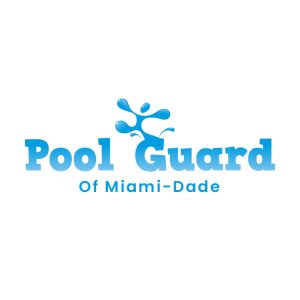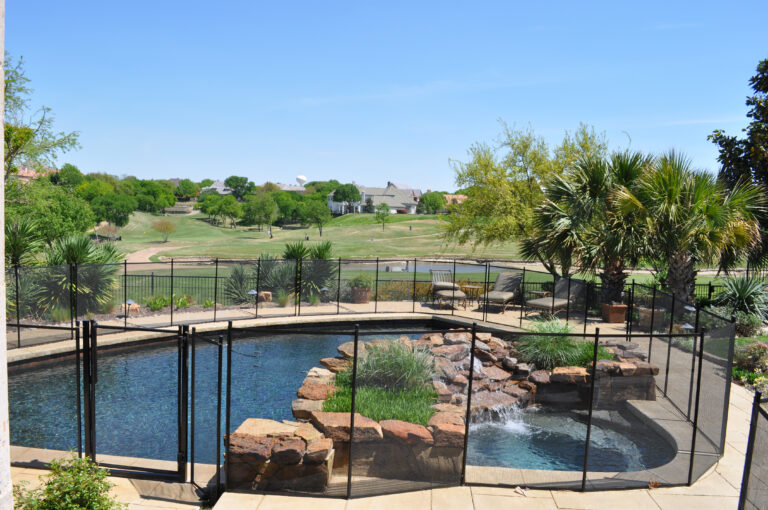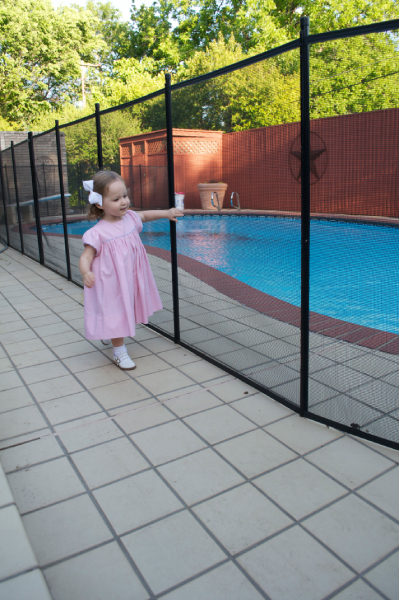
Get a free estimate today by contacting your certified pool safety fence dealer now.
Coverage
Posted onTrustindex verifies that the original source of the review is Google. I have a Portugeses H20 Dog that naturally loves the water. Everytime he went out of his doggy door he would jump in the pool and swim around, get out and run back into our house soaking wet. So we have a pool cover that I rolled out and thought that would stop him, no such luck, he still jumped on top of the cover, moved it and swam. So I called Pool Guard and they installed a pool fence and that new pool fence solved the problem. On the day of install, Pool guard had a crew of 4 guys show up and worked with me to design the shape of the fence line and had the template to mark off the holes and fenceline shape with me before any drilling of the holes started. Although I was over thinking the design, Pool Guard made it extremely simple for me. So simple that when my wife saw it she liked it! Thats was a big relief. Getting back to the dog,-no more random pool swimming unless we want to let him swim. Moreover, the fence is extremely sturdy, more so than the first PVC fence we got when the kids were little and the colors of the tube and mesh were picked by us with the owner Mikes help, which match the colors of our home. In closimg, the fence is removable and the holes that are drilled into my paver-deck have a plug so when the pool fence is temporarily removed you would never know there is a fence and the gate locks so if the grandkids that we might have someday won't drown. That has always been a concern for us when the kids were little and once that fence goes up the concern is mitigated. Peace of mind is the key to life and thats what Pool Guard has afforded us. Thanks Pool Guard!Posted onTrustindex verifies that the original source of the review is Google. I have to give a big shout out to Pool Guard Manufacturing. We had their pool safety fence and gate system installed on our pool deck a few months back in anticipation of our new grandson visiting. We've lived with it for an entire pool season and we love it! The quality and construction are great and the gate is fantastic. It snaps closed perfectly no matter how many times we run in and out of the pool. Bonus, it has been keeping our new Labrador puppy safe and out of the pool when we don't want him swimming. This is truly a wonderful product.. Thank you Pool Guard!Posted onTrustindex verifies that the original source of the review is Google. Safety first. Great company, great communication, great work. I visited the warehouse in Clearwater. Very well organized and tightly run. A+Posted onTrustindex verifies that the original source of the review is Google. I would like to thank Pool Guard Manufacturing for doing such a wonderful job installing our pool safety fence. I got several estimates, and the quality of the Pool Guard fence was so much better than what we reviewed from other companies. I like that they make the fence in their factory in Clearwater, Florida. I feel so much better knowing when I have my grandkids or other young children visiting my house, that my pool is safe with a strong safety fence. Thank you!Posted onTrustindex verifies that the original source of the review is Google. Good company, nice people they leave donuts in the breakroom sometimes.Posted onTrustindex verifies that the original source of the review is Google. Posted onTrustindex verifies that the original source of the review is Google. Posted onTrustindex verifies that the original source of the review is Google. Delivered here many times in the past and everyone involved here are very friendly and willing to helpLoad more

Secure your pool with premium mesh fencing engineered for South Florida’s coastal climate and built to comply with Miami-Dade safety codes. With 30+ years of experience, Pool Guard™ delivers fast installation, certified materials, and sleek, child-safe barriers trusted by homeowners across the Miami area.
30+ Years of Florida Installations
Certified & Insured for Residential & Commercial Projects
Fully Code-Compliant with Miami-Dade County Laws
One-Day Installation Available
Childproof, Pet-Safe, and Climb-Resistant Design
Lifetime Manufacturer Warranty
Eco-Friendly & Sustainable Material Options
A+ Rated by the Better Business Bureau
From Coral Gables to Miami Beach, Pool Guard™ delivers safety, quality, and aesthetics trusted by families and pool professionals alike.

Self-closing, self-latching gate with MagnaLatch® and Tru-Close® hinges
U-shaped frame made of marine-grade aluminum
Welded corners for added strength and stability
Built-in drain holes prevent water buildup
Made from premium stainless steel
Two-handed operation for added child safety
Available in multiple sizes for various installations
Compatible with most removable mesh fences
Free Estimate + Custom Layout Planning
Surface Prep + Precision Core Drilling
Fence & Gate Installation + Final Inspection & Clean-Up
We handle everything from zoning code compliance to final walkthrough so your pool is protected from day one.

All fences, nets, and covers meet or exceed ASTM safety standards, including ASTM F2286 for removable mesh pool fencing.

Accredited since 2011, Pool Guard™ holds an A+ rating with the Better Business Bureau for trust and customer satisfaction.
Please fill out the form below with your information. Your local dealer will be notified about your inquiry.
Please fill out the form below with your information. Your local dealer will be notified about your inquiry.